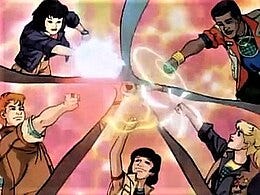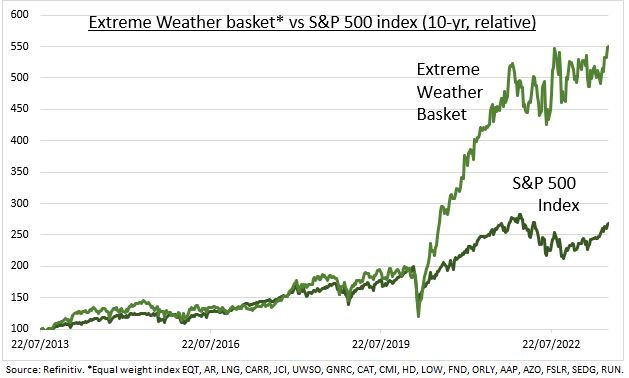Let Readers Choose Their Format
Also: Runway ML 2 and Vibe Media, Black Hole Smart Contract Art, and Love for Tears of the Kingdom
In a few places this week, I encountered conversations where it was mentioned that the various formats of a novel should ultimately be bundled, because it’s pro consumer. I agree.
The following is a quote from Brandon Sanderson’s profile in Esquire (emphasis is mine):
For years, he tried convincing the former president of Macmillan, John Sargent, to publish multiple editions at different price points—including leatherbound hardcovers filled with original art like Tress and the Emerald Sea—and bundle them with e-books and merchandise. But Sargent never budged. Instead, publishers like Macmillan sell hardcovers and e-books as two separate products—plus paperbacks that hit the market months later, if the titles sell well enough. Sanderson says this punishes readers who choose to spend money to support the authors they love, even though they could pirate digital books or check out free hardcover copies from a library.
“They won’t say it, but publishers get really excited by the idea that we can get super-fans to buy three copies of the same book,” Sanderson says. “But wouldn’t super-fans be happier if they could buy one really nice edition in all formats? Give them a bundle with the print book and the e-book. Reader-centric ideals will lead to long-term success for the publishing industry.”
John Warner wrote about how he plans out his trips for reading (ht Rian). Like many of us, we enjoy reading a physical book more than a Kindle.
I transitioned to a Kindle Paperwhite, but truth is, I just don’t like reading books on a little screen. Yes, it’s a hassle to carry a bunch of books with you over a long trip, but you gotta do what you gotta do.
For me, I got frustrated the past few weeks, because while I was doing some travel, I couldn’t really take along the current book I’m reading (Tomorrow, Tomorrow, and Tomorrow), because the only version of the book I could find with small print, is a hardcover. So, it’s bulky and when my backpack already includes my laptop, headphones and Switch, it’s just too much. I enjoy travelling with one paperback.
In addition, I usually buy both the audiobook and the physical copy due to how I prefer to read: listening to it on my runs and walks and then feeling paper on my hands on the couch.
But, the publishing industry, like Brandon says, insists on upselling and funnelling superfans into different price points. I think it’s silly: I’d way rather pay extra to get the formats I want and give me bundled discounts for it. At release, give me a bundled e-book + paperback + audiobook please. It’s ultimately a lot more reader friendly, meeting the readers where they are and coming to terms with how people read stories these days. Heck, insta novels is also a thing.
Without a doubt, media companies use staggered releases as a way to siphon more money from superfans: go to the cinema, buy the lightsaber, stream it again after release, buy the collector’s edition, go to the convention, buy the new branded release, buy the remastered edition and so on and so on. But, at some point, I think that bundling might actually improve sales. We intuitively know that, but we don’t know where that line is. If you figure out when we should bundle and we should unbundle, you’re likely to win a Nobel Prize in economics. 😅
How do you read? What formats do you prefer? Would you prefer bundling of media more?
Protocols of Speaking
I found this assertion quite interesting.
I dug up some research and found that “Hello” was used before Thomas Edison proposed it as a telephone greeting, but not regularly. Regardless, he popularised it and what’s more interesting is just how something that’s now common, was once new. There was no standard protocol for greeting someone over the telephone, because we never used to greet someone without being present in the room with them. Thus, it needed to be invented. The wiki on “Hello” has some more background information.
Standards for communication and interactions is always interesting, because there is ultimately a leap of faith each time. It reminds me of the early skeuomorphism of the iPhone.
Or, even when I helped design the ERC20 token standard on Ethereum. You don’t know ultimately how it will unfold and you can only do your best. Now whenever a new chain refers to their fungible tokens, they even adopt the same naming scheme, BRC-20s or TRC-20s (for Binance or Tron). The standards that win aren’t always the best, it’s often just the ones that has the most distribution.
I’m curious if there are any other great examples from history when new interaction protocols had to be invented and it wasn’t clear what the right choice would be?
Co-Play
I enjoyed this perspective on co-play and multiplayer software from Jay.
So we have a livestreamer playing a game in real-time. Talking to and responding to chat which is wired directly into the game world. Chat is playing the game collectively with the streamer. Think Twitch Plays Pokemon With … thejaymo. Chat commands, emoji sentiment, voting and other mechanics yet to be developed are all used to control elements in the game world. Acting cooperatively with, or competitively against, the streamer.
It’s actually remarkable that we haven’t seen much deeper integration in games from the audience into the world inside. Like, imagine that the gamer can receive power ups from chat, them interacting and sending support?
“Alright chat, send me some support. Activate the beams!” And then, like a Captain Planet montage, the beams channel into the player as they vanquish a foe together.
Maybe there are examples like this, but it feels like a wholly underexplored genre of game.
The Rise of Vibe Media + The Runway ML AI Videos
Gen 2 of Runway ML was released this week and it has a feature called image to video. It’s really interesting how it is able to infer suspected behaviour from an image to a video. So, people have been creating MidJourney images and then piping it into Runway ML.
And here’s a thread of many more examples.
On the one hand, much of these feels like tech/vibe demos rather than a meaningful story. I still argue that because an AI in this case has to fill in the gaps, you are still trading off automation against specificity.
This take is true here (and is again backed up by the success of Barbenheimer vs Hollywood Sequel Factory):
But, I think it missed that what we might see from AI generated media is that it will be LARPing media. It’s media of vibes. There is no need for a story, it’s just supposed to make you absorb the whole of it. It’s like the tone of a song when you don’t really care for the lyrics.
Perhaps the act of directing these AI inferences will become more involved such that one can become more specific, but, my suspicion is, is that you then run up against that complexity limit. It’s far more likely that AI generated media will create a new niche of media, which is purely vibes based. The goal is to create a tone of feeling rather than a coherent story.
Tangentially, there’s been examples of games infusing LLMs into NPCs.
It would absolutely suck if NPCs in a trad game would be this complex and versatile. No one wants to jailbreak an orc and give them existential crisis. Or worse, cause chaos that actually breaks the game. The guardrails are there for a purpose, to guide the player on a path through a story and its gameplay.
What I do expect instead is the marriage of these two variations, an experience that’s purely about world building and vibes. It’s not a game and it’s not a film. Like Minecraft, the world endlessly unfurls, filled with LLM NPCs of all sorts existing in it. We’d merely be there to vibe in it. You can call it a simulation, but I think that misses the point: it’s not about replication, but about feeling. It’s endless generative vibe worlds. We’ll still have games. We’ll still have Oscar-worthy films, but if the message is the medium, AI media will primarily be focused not on specificity but tone/vibes. The latter as a form of media is new precisely because you can’t afford to be specific at this scale.
Zelda: Tears of the Kingdom
This week, after about 100 hours of play time, I finally finished the new Zelda. I was trying to figure out what I could say about the game. It’s a top 3 game for me, and perhaps the best game ending I’ve ever played. What can I say that hasn’t been said before? Perhaps I need time to digest it. It truly feels remarkable. Pure joy and exploration in a world that feels so alive, substantially more-so than its predecessor. I’m still processing the ending. What an amazing ending to a game. If you’ve played it through to the end, let me know, would love to hear what you enjoyed and didn’t!
Enjoy one of my favourite themes from the game (no spoilers).
Black Hole Smart Contract Art
Been thoroughly enjoying this new art project that is a perfect example of using smart contracts as the basis of the art itself.
The art is generated onchain and how it works, is that, every 8 blocks, a new one is randomly generated and able to be minted and collected. The money goes into a pot (and the price goes up to collect a new one). If you decide to destroy your black hole, it decreases the price for the next collector, but you also become eligible to receive all the money in the black hole, but only if no-one else mints or destroys their black hole after 42 hours. Thus, like a black hole, it could continue to siphon away funds until everything has been absorbed into it.
Love it.
The Fall of StackOverflow
An interesting catch 22 is unfolding. StackOverflow is declining in usage, in part because CoPilot + ChatGPT is reducing the need for it.
But, if LLMs were trained on StackOverflow and it were to disappear, where would new data come from? This isn’t unique to StackOverflow either and it explains why some sites have started putting up walls against LLM scraping. It’s thus no surprise that StackOverflow launched their own AI.
Extreme Climate Stocks
Companies that deal with extreme climate has outperformed the index.
Look, everyone is entitled to their own ethics, but a part of me finds this difficult. Not so much being invested in green energy (eg, solar energy), but stocks that do well if climate change gets worse. Companies like air conditioning, cooling, and repair.
Not sure how to square this one.
Becky Hill x Chase & Status - Disconnect
My route into electronic music was drum and bass. In 2009, I was dancing to Chase & Status! This new track from them along with Becky Hill brings me totally back to that era of drum and bass. Enjoy!
As always! Enjoy a sunset and see you all next week!
If you enjoyed this newsletter, please share it with friends. :)
-Simon










